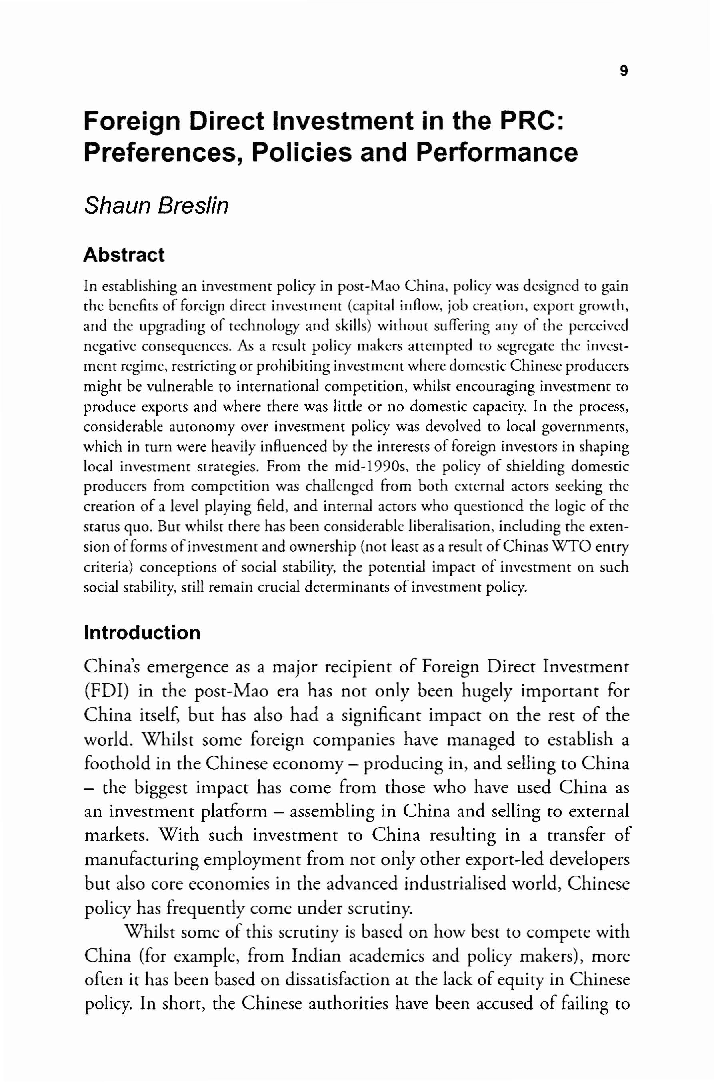| Article ID | Journal | Published Year | Pages | File Type |
|---|---|---|---|---|
| 1061610 | Policy and Society | 2006 | 30 Pages |
In establishing an investment policy in post-Mao China, policy was designed to gain the benefits of foreign direct investment (capital inflow, job creation, export growth, and the upgrading of technology and skills) without suffering any of the perceived negative consequences. As a result policy makers attempted to segregate the investment regime, restricting or prohibiting investment where domestic Chinese producers might be vulnerable to international competition, whilst encouraging investment to produce exports and where there was little or no domestic capacity. In the process, considerable autonomy over investment policy was devolved to local governments, which in turn were heavily influenced by the interests of foreign investors in shaping local investment strategies. From the mid-1990s, the policy of shielding domestic producers from competition was challenged from both external actors seeking the creation of a level playing field, and internal actors who questioned the logic of the status quo. But whilst there has been considerable liberalisation, including the extension of forms of investment and ownership (not least as a result of Chinas WTO entry criteria) conceptions of social stability, the potential impact of investment on such social stability, still remain crucial determinants of investment policy.
